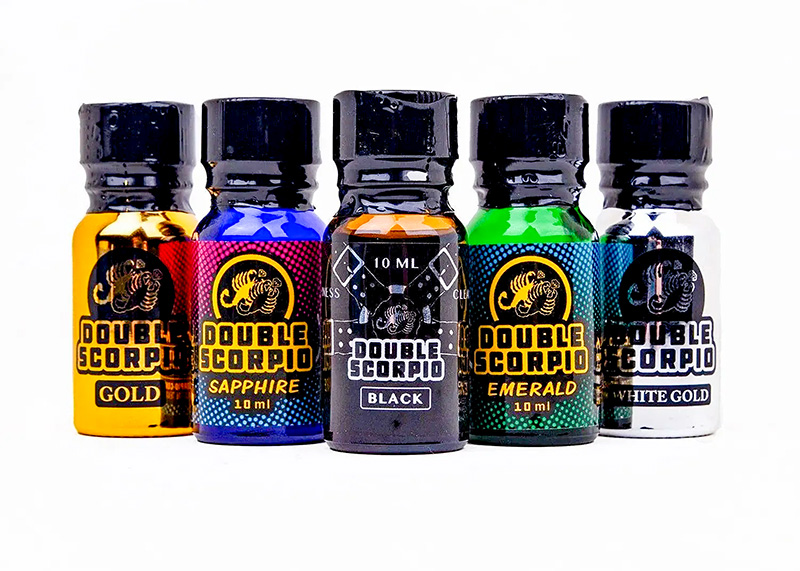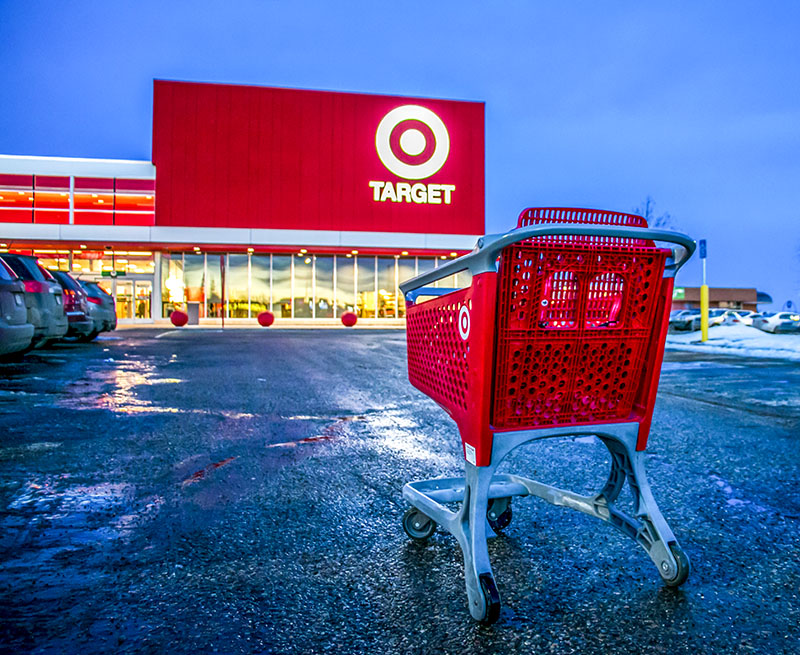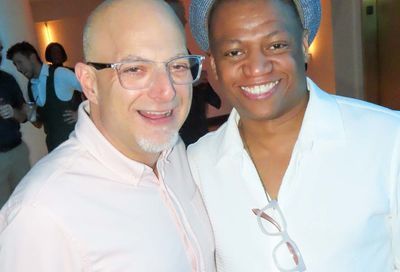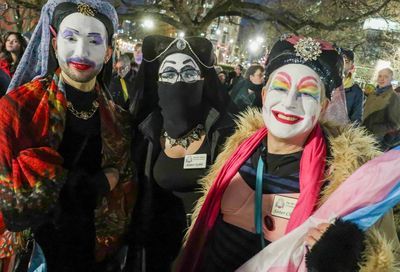6 in 10 Americans wrongly believe HIV can be spread through casual contact
Almost 9 in 10 Americans say there is stigma around HIV, but also say improvements in HIV treatment have been made

A recent national survey of Americans seeking to examine the stigma around HIV finds that only half feel knowledgeable about the virus, and that 6 in 10 falsely believe that HIV can be spread through casual contact.
The inaugural State of HIV Stigma Study, conducted by research firm Cint and funded by pharmaceutical giant Gilead Sciences, Inc. in partnership with the LGBTQ media advocacy organization GLAAD, polled 2,506 U.S. adults between November and December 2019 in order to American attitudes about HIV/AIDS and people living with the virus.
The survey’s findings underscore the relative ignorance of Americans about HIV, examining their beliefs about its transmission, how it is treated, and societal attitudes towards HIV-positive individuals. For starters, only 51% of non-LGBTQ Americans, and only 55% of LGBTQ Americans say they “feel knowledgeable about HIV.” Nearly 40% of non-LGBTQ Americans and 34% of LGBTQ Americans say they “know a little about HIV.”
Only 60% of those surveyed agreed with the statement that “HIV is a medical condition that can be treated,” highlighting Americans’ lack of familiarity with antiretroviral drug treatments, as well as the long-lasting impact of decades-old media portrayals of HIV/AIDS as an untreatable disease resulting in painful death within a matter of months. In fact, according to the Centers for Disease Control and Prevention, a person who takes HIV medication as prescribed and stays virally suppressed can stay healthy and has effectively no risk of transmitting HIV to HIV-negative partners.
Nearly 9 in 10 Americans believe there is still stigma around HIV and agree with the statement that “people are quick to judge those with HIV.” Perhaps even more concerning was that nearly 6 in 10 Americans, including 57% of LGBTQ people, agreed with the statement that “it is important to be careful around people living with HIV to avoid catching it,” suggesting they believe the virus can be contracted in the same way as the flu or the common cold.
Additionally, only 35% of Americans agreed that people living with HIV “shouldn’t have to tell others,” perhaps yet another reflection of their misguided belief that HIV can be transmitted through casual contact.
Survey respondents were presented with eight situations evaluating their level of comfort toward people living with HIV, including: a co-worker, a neighbor, a teacher, a family member, a partner or spouse, a person at their place of worship, a barber or hairstylist, and a doctor, dentist, or medical professional. Of those situations, Americans were least comfortable with a doctor, dentist, or medical professional living with HIV, with 54% saying they’d be “somewhat” or “strongly” uncomfortable with that situation.
Forty-nine percent of Americans said they’d be somewhat or strongly uncomfortable with a partner or spouse living with HIV, and 45% of Americans said similarly about a barber or hairstylist. In each situation, LGBTQ people expressed less discomfort than non-LGBTQ people, although about one-third of non-LGBTQ people and more than one-quarter of LGBTQ people expressed significant discomfort in all eight situations.
See also: Los Angeles reporter Karl Schmid comes out as HIV-positive in order to dispel stigma
There was, however, some positive news, with 54% of Americans reporting they’d seen stories in the media about people living with HIV. Additionally, Americans appeared hopeful about prospects for treating and combating the disease. Over 90% of Americans surveyed agreed with statements such as “information should be readily available” about HIV, that “promoting prevention should be a high priority,” and that “schools should provide prevention information.”
More than 90% of non-LGBTQ Americans also agreed with statements that people with HIV “can live productive or happy lives” and that “great strides have been made in treatment” of HIV.
Along with the survey results, GLAAD released a video of celebrities talking about the results of the survey and HIV stigma. Among those in the video are: Peppermint, Sheryl Lee Ralph, Michelle Visage, Tatiana Maslany of Orphan Black fame, Jonathan Fernandez of Love & Hip Hop, actor Daniel Franzese, singer Parson James, Selenis Leyva of Orange is the New Black, and singer Asiahn.
In addition to the video, GLAAD announced its “Accelerate Compassion” and “Accelerate Impact” programs, which include media trainings for hundreds of HIV and LGBTQ advocates in the American South and among communities of color, regional media work to improve the accuracy of coverage of across local news outlets, and recent staff hires to support that work. The programs are funded through a $9 million multi-year grant from Gilead Sciences as part of Gilead’s COMPASS Initiative. The GLAAD Media Institute is also working in Hollywood to encourage writers and producers to tell new and diverse-scripted storylines related to HIV.
“People living with HIV today are leading long, healthy lives and cannot transmit HIV when they receive proper treatment, but the stigma that they face has persisted for far too long and leads to harmful discrimination,” GLAAD President and CEO Sarah Kate Ellis said in a statement. “HIV issues have flown under the radar, but with advances in treatment and prevention, we urgently need to educate the public on the facts about HIV today. GLAAD’s new programs will ensure that local HIV advocates are front and center throughout national and local media in an effort to educate the public and uplift stories about people living with HIV.”
“This new survey gives us valuable insight into the role stigma plays as a barrier to care,” Amy Flood, the senior vice president of Public Affairs at Gilead Sciences, said in a statement. “The solution will require collaboration between the entire community fighting this epidemic, from scientists, to doctors and community leaders — and Gilead is proud to be a part of this effort.”
See GLAAD’s video below:
Read more:
LGBTQ people make Donald Trump “uncomfortable,” claims lesbian niece
Netflix touts transgender-inclusive storyline in The Baby-Sitters Club series
Most gay and bi men hid COVID symptoms from sexual partners, study finds
[bookshelf id=’2′]
Support Metro Weekly’s Journalism
These are challenging times for news organizations. And yet it’s crucial we stay active and provide vital resources and information to both our local readers and the world. So won’t you please take a moment and consider supporting Metro Weekly with a membership? For as little as $5 a month, you can help ensure Metro Weekly magazine and MetroWeekly.com remain free, viable resources as we provide the best, most diverse, culturally-resonant LGBTQ coverage in both the D.C. region and around the world. Memberships come with exclusive perks and discounts, your own personal digital delivery of each week’s magazine (and an archive), access to our Member's Lounge when it launches this fall, and exclusive members-only items like Metro Weekly Membership Mugs and Tote Bags! Check out all our membership levels here and please join us today!























You must be logged in to post a comment.